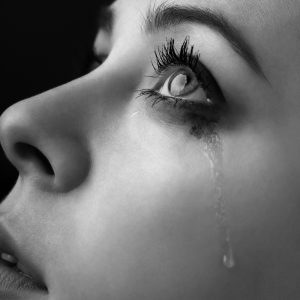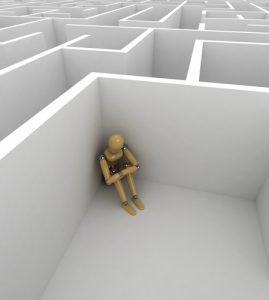 Written By Miranda Booher
Written By Miranda Booher
Many people have lost their lives to this pandemic which leaves behind many loved ones to mourn. These people who have died from COVID-19, often do so under sad and isolated circumstances.
How has COVID-19 changed the way people grieve the death of loved ones? Keep reading to learn what COVID-19 means for the grieving process and how technology is adapting to the changes.
Losing a loved one in a hospital during the COVID-19 pandemic
Visitors to all hospitals and healthcare facilities have been greatly restricted due to COVID-19 in accordance with the recommendations that were set forth by the Centers for Disease Control (CDC).
As such, since the start of this pandemic, people who end up dying in the hospital often find themselves dying alone. They tell their loved ones final goodbyes on the cellphones of busy nurses who barely have the time to be in the patients’ room making the phone calls possible. One nurse name Heather who works in the emergency room of a community hospital in Northwest, Ohio said:
¨I am helping patients in the emergency room talk to their loved ones on Facetime to tell them their goodbyes. It’s drastically different from how it worked pre-COVID-19. The worst part to me is that we are actually seeing very few cases of COVID-19 in the hospital setting, but they are taking extra precautions, which has prohibited guests of any kind from visiting. I fear that the mental health effects of the lockdown will be worst than those of the actual disease itself.¨
Every hospital and healthcare facility will vary a bit when it comes to the exact policies regarding visitation. However, it’s pretty universally accepted that if the patient is positive for COVID-19, then they are allowed to have no visitors at all. It’s also the case in vast the majority of hospitals that visitors of any kind are restricted or only allowed to visit in specific circumstances.
It’s hard not being able to say your goodbyes in person
A lot of people find solace and closure in the final conversations they are able to have with a loved one right before they die. The distancing and isolation circumstances, whether that is at home or hospital, make it harder for people to get that same kind of closure when their loved one is dying.
Nurses and doctors are the ones who hold the hands of strangers as they conduct virtual meetings with the family and friends of dying patients who are not able to visit their loved ones in person. Clinicians who are suddenly thrusted into these positions are left to carry burdens of stress and sadness, even though they may not have any training in grief counseling.
Healthcare professionals who are adequately trained in end-of-life care, such as hospice and palliative care teams, are feeling overstretched beyond their capacity at the moment because of the rising need. The shortage is compounded by the fact that hospice nurses are already in short supply, as it takes a special kind of person to work in this field of nursing.
Loved ones actually begin the grieving process by being present with the person who they know is going to soon die. Many people use this time period to resolve any issues or messy emotions, such as feelings of denial and guilt, which are common. People who have been robbed of these quality moments before the end of life may feel a lack of closure.
Funeral bans make it hard to gather in tribute for the deceased
Funerals are also banned. Small gatherings are illegal in many states. For more information on the restrictions on small gatherings and funerals, you can see this list of coronavirus restrictions in every state from AARP.
The ban on gatherings and funerals means that many of the rituals associated with this level of the grieving process are being missed, such as:
- Watching the casket be lowered into the ground
- Holding a wake or sitting shiva
- Having people visit your home and share memories about the departed
All of these therapeutic steps are being bypassed, and because of COVID-19, people need to learn new ways to mourn from home.
Creative technology solutions for social distance mourning
New ways of connecting with the community when a loved one dies are beginning to emerge as a result of the situation. Heart in Diamond is a company who allows people to send in some cremated ashes or hair from a loved one, and have it turned into a diamond. Creative memorials such as this help people who missed a funeral or other memorial pay tribute to their loved one.
We grieve together as we move into the future
All of us are grieving as we make it through this pandemic. Even those of us who have not and will not lose a friend or family member, we still experience the grief of losses. Whether it’s the loss of a job, the predictability of life day to day, or even the toilet paper, we grieve the life we once knew and hoped to live. We must be kind to ourselves and to others and recognize where these feelings of depression, rage, anxiety, and hopelessness are coming from.
There is no crystal ball that can show you how your journey with grief is going to be, but perhaps some of these new digital solutions can help us deal with death during COVID-19 and share memories in a new way
Please also review AIHCP’s Grief Counseling Program and see if it matches your academic and professional goals. The program in online and independent study and open to qualified professionals seeking a Grief Counseling Program





 Written By Miranda Booher
Written By Miranda Booher Written By Miranda Booher
Written By Miranda Booher




